Lincoln is one of four public Montessori elementary schools in Denver. We are proud to offer families this opportunity and encourage current and prospective parents to learn about the history and philosophy of the Montessori Method in order to better understand their child’s educational experience at Lincoln. See below for a brief introduction to the Montessori Method.
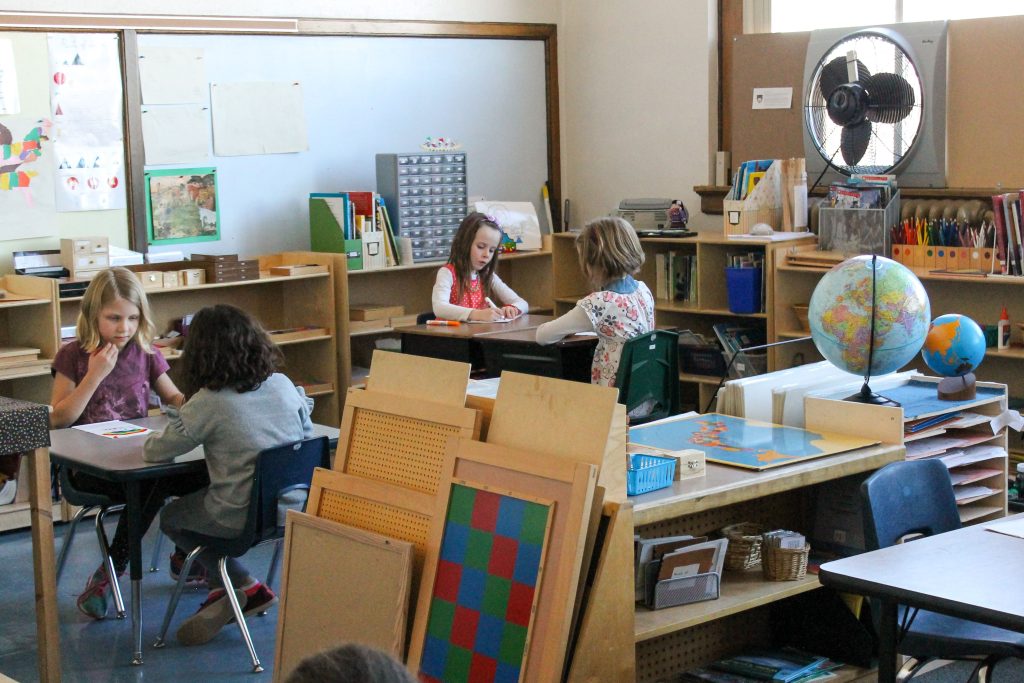
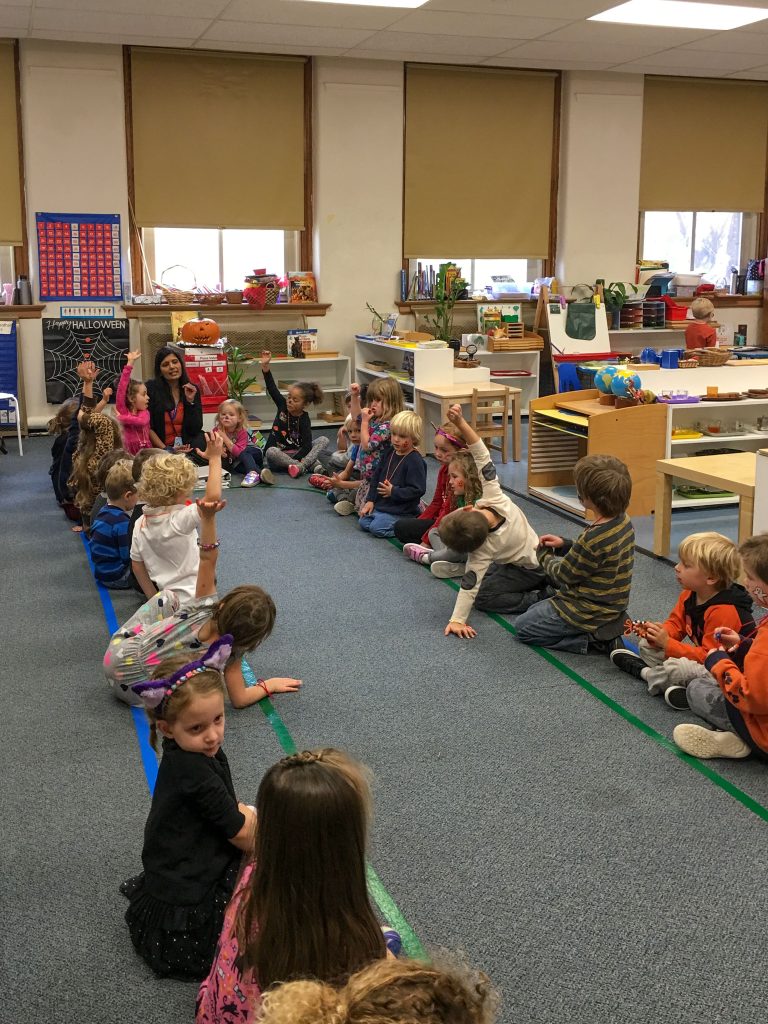
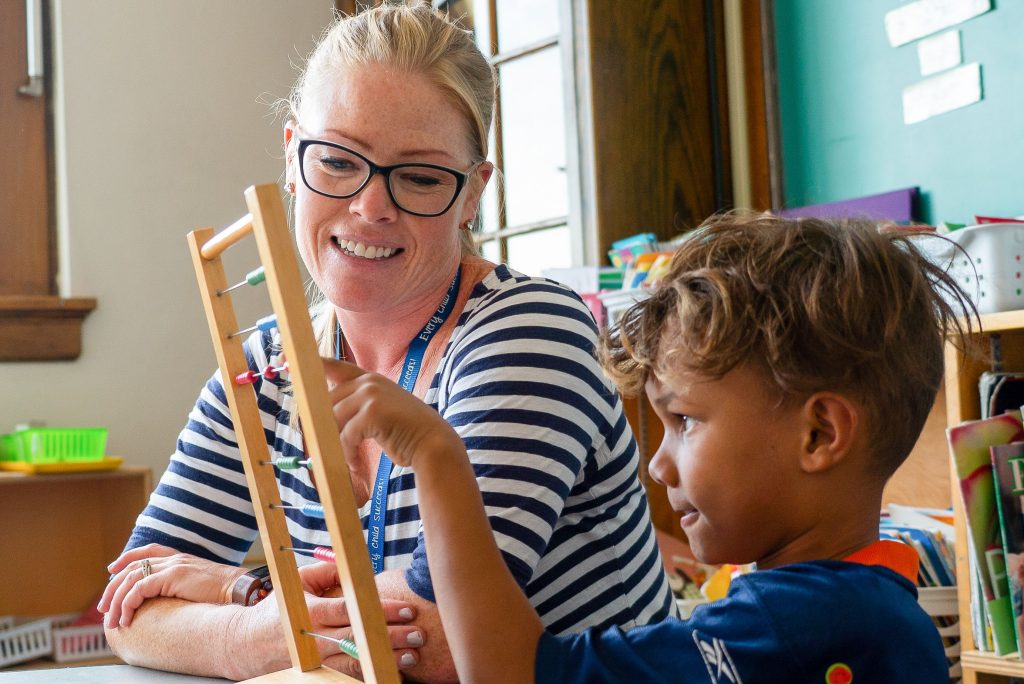
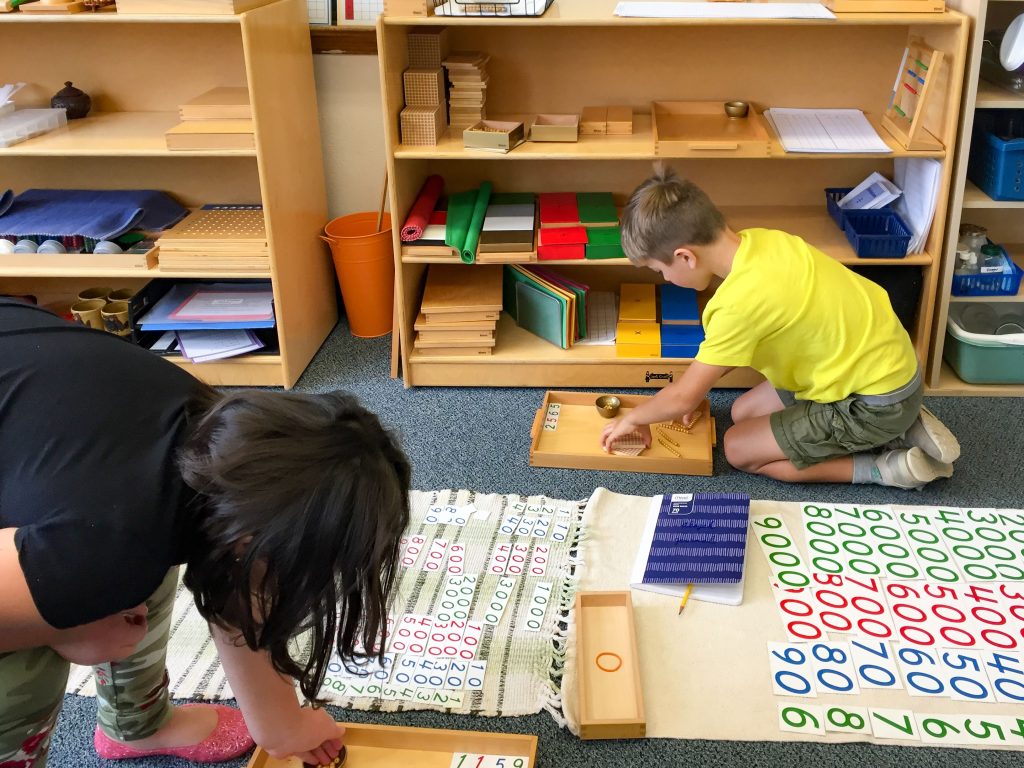
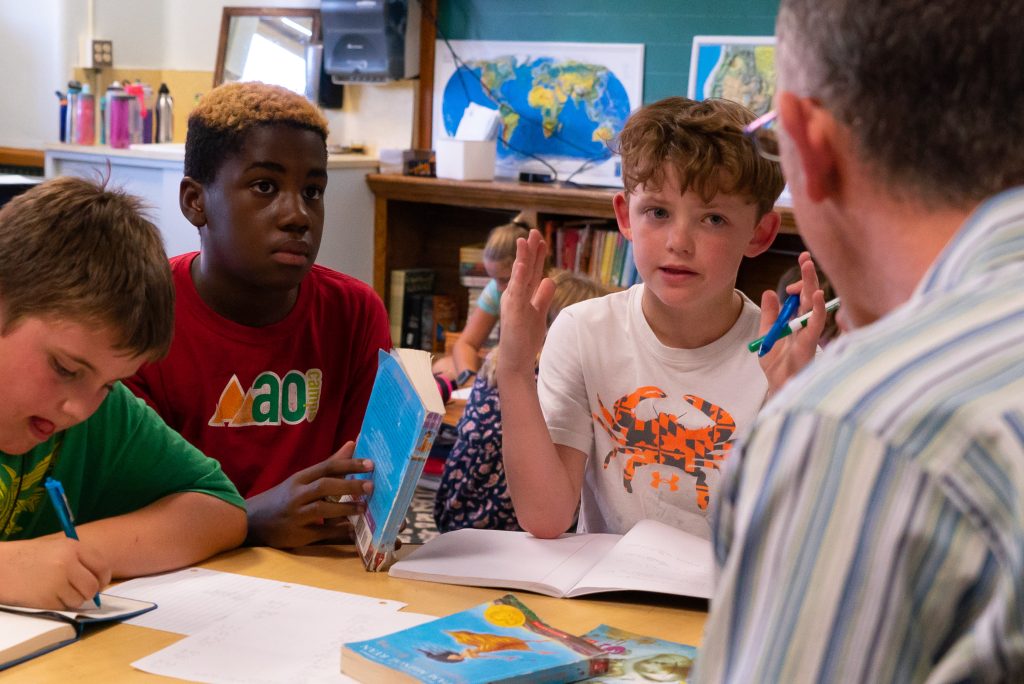
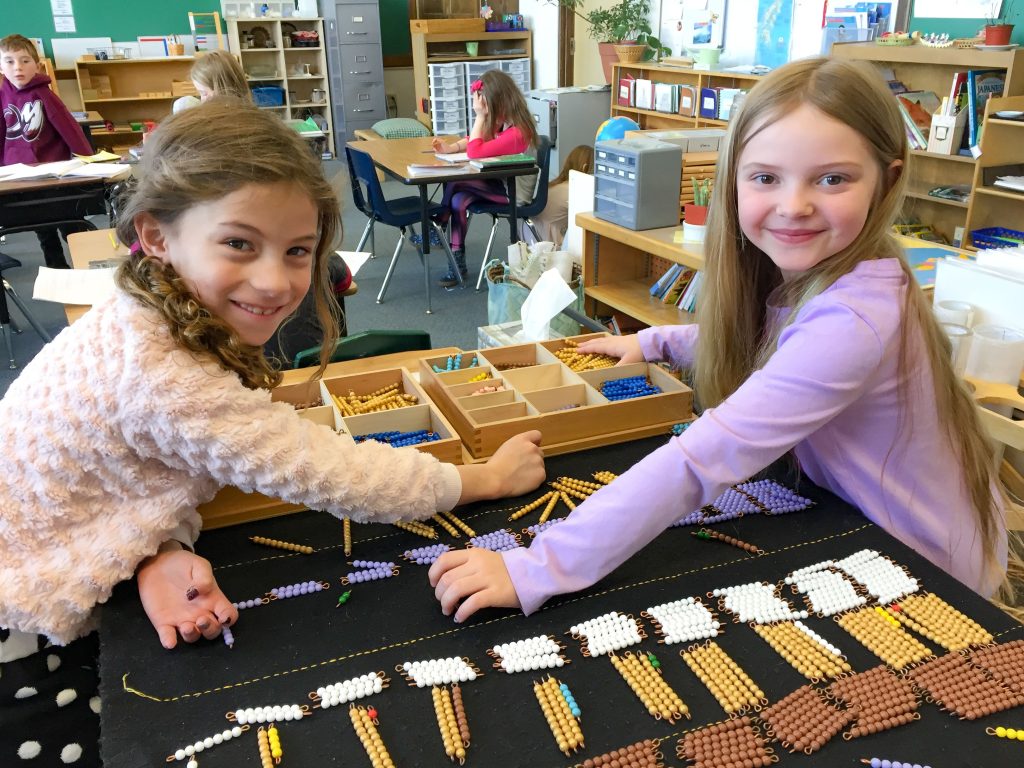
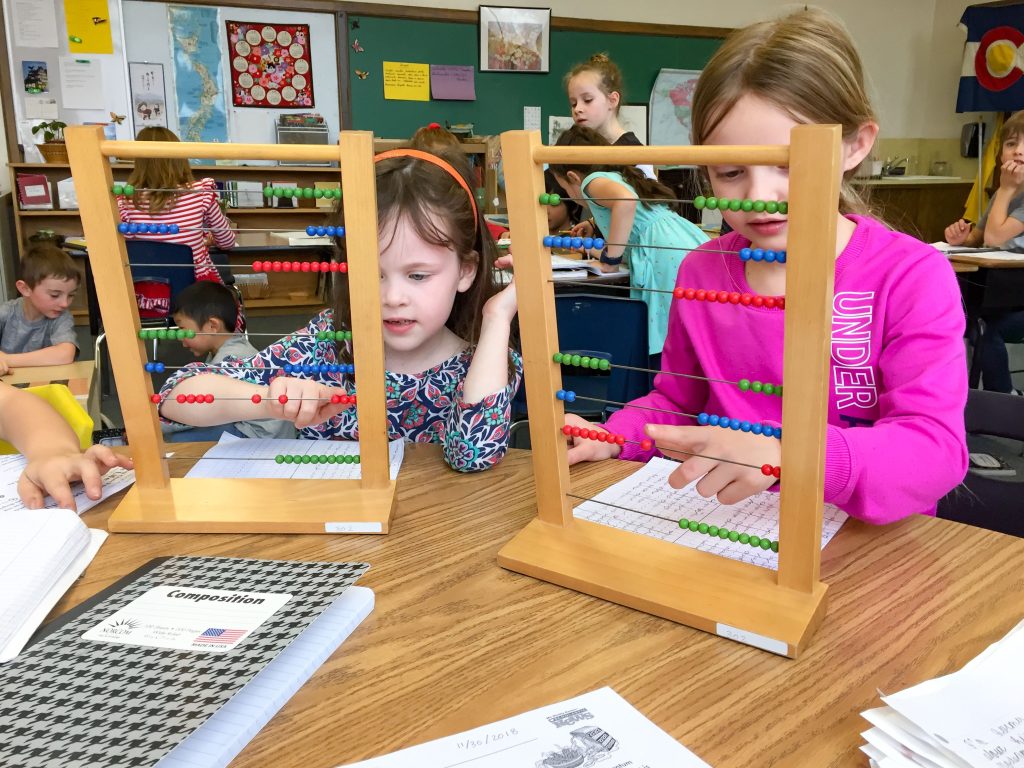
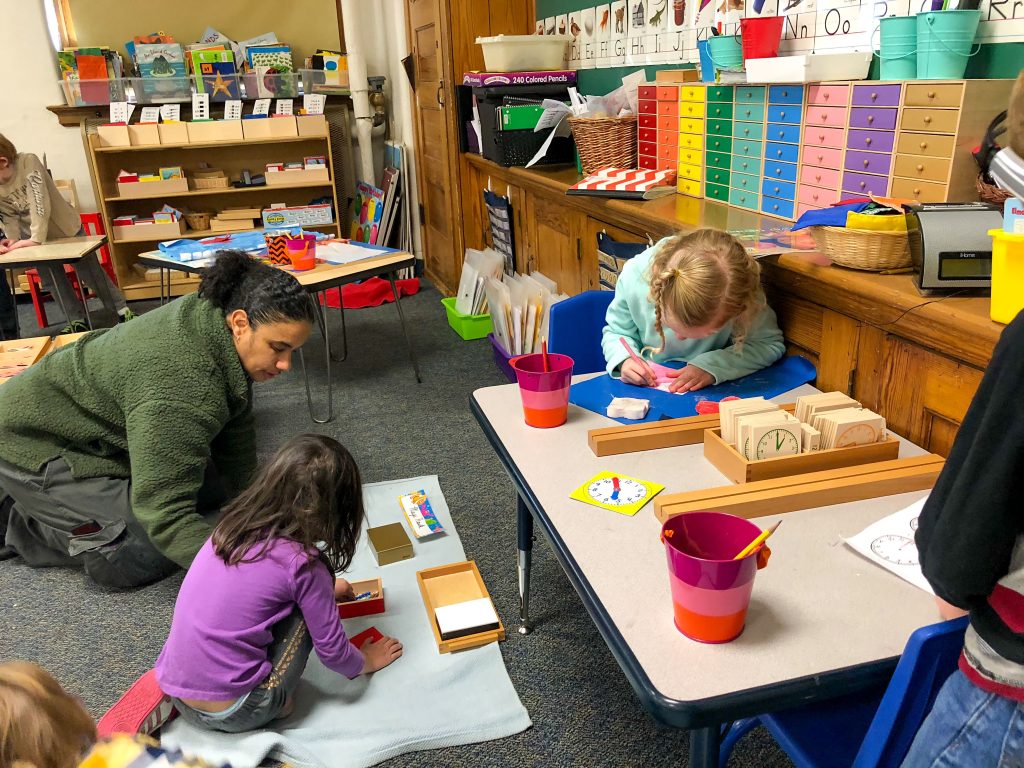
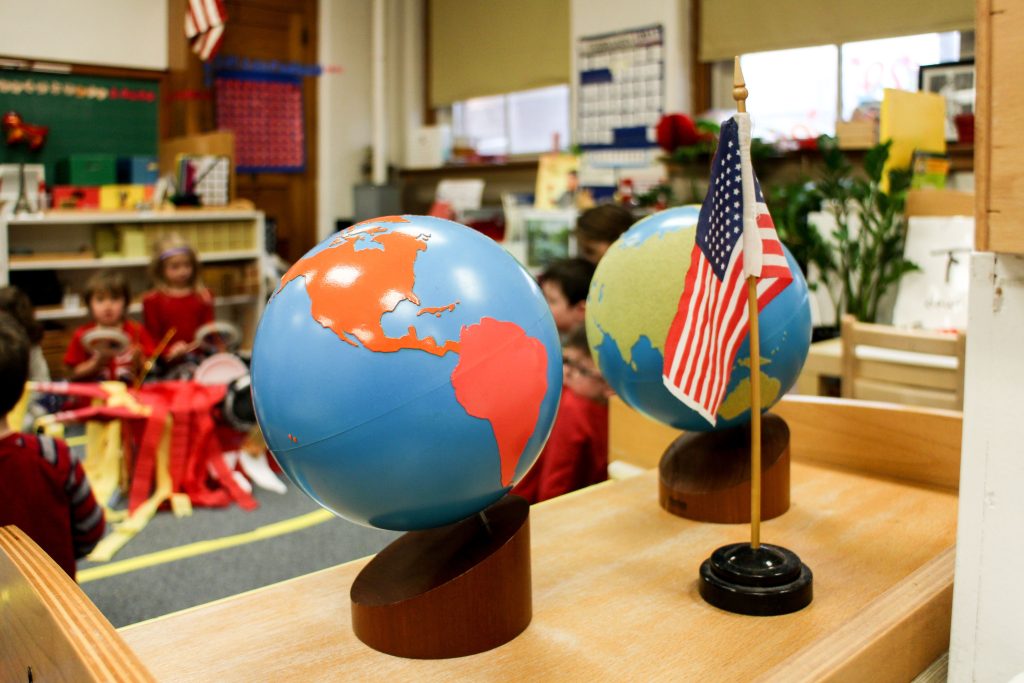
Dr. Maria Montessori was an Italian doctor who had a strong background in physics, mathematics, natural sciences, psychology and anthropology. In 1906 she pioneered several groundbreaking theories based on research she conducted in her classroom laboratory.
Dr. Montessori observed that the transformation of children from birth to adulthood occurs through a series of planes that have distinct physical, intellectual, social, emotional, and spiritual developments. After studying children in a variety of countries, from a number of different cultures and backgrounds, Dr. Montessori concluded that childhood is the most formative time in human development, a time when the human mind is constructed to organize and learn from the environment.
Based on these recognitions, Dr. Montessori designed a classroom environment to support learning and assist in each child’s complete development. Today, this foundational concept of the Montessori method is often referred to as educating “the whole child”.
The Montessori Method has proven effective for over a century in different languages and cultures throughout the world. To learn more about the history of the pedagogy check out our Additional Montessori Resources page.
Materials and activities designed by Dr. Montessori are specific for each developmental plane and often contain purposeful ends and built-in controls of error. It is the combination of other children, the teacher as guide, a curated environment, and the materials themselves that facilitate learning, independence and responsibility while allowing Montessori educators to observe each child’s academic, emotional and social progress, as well as interests and personality.
Implementation of Montessori principles at Lincoln changes in scope and manner to embrace the child’s changing characteristics, needs, confidence and interests at each plane of development. Lessons and experiences from previous years becomes the foundation for new lessons and experiences. Children who complete this progression from Primary (ECE & Kindergarten) to Lower Elementary (1st – 3rd) and through Upper Elementary (4th – 6th ) receive the full benefit of a Montessori education.
A Montessori education fosters:
All classrooms at Lincoln are filled with natural light and have space for children to move and be comfortable. Our mixed-aged Montessori classes sizes range from 24-28 students.
The concepts of the Montessori approach to education are elegant in their simplicity, yet based on a sophisticated understanding of the relationship between human development, learning and the environment. The cornerstones of the classroom environment are:
You can “visit” our classrooms at the following links:
Our Primary classroom environments are designed to offer a unique cycle of learning to meet the developmental needs of 3-6 year olds. Within this mixed-age group, each child develops at their own pace, hones social skills and gains a deep sense of caring and respect for one another and for the classroom environment. Each year in the Primary classroom, children develop different skills and explore materials in new ways. They experience a sequence of activities that prepares them for their next level of learning.
The Primary classroom includes areas of practical life, sensorial exercises, mathematics, and language development. Lessons are given in history, geometry, biology, geology, and geography, and art, music, and literature are integrated into the classroom activities daily. The Full-Day Primary is a continuation of the morning activities. The children work independently and in small groups and receive individual and small group lessons.
In their culminating year, the oldest children are the leaders in the classroom community. They assist and teach the younger children and serve as responsible models of classroom procedures. This culminating year is a year of consolidation and mastery of knowledge, and creative development.
In the Primary level your child built a solid foundation of skills that can now be extended to the almost limitless horizons of the Elementary class. Elementary-age children look at the world in a different way: their focus of interest shifts from the “what” of the younger child to the “how” and “why” of the wonders of the universe.
The prime tool for Elementary exploration is imagination assisted by reason which, combined with the literacy and numeracy developed in the Primary level, form the springboard for the in-depth research and experimentation that now hold such an interest for the Elementary child.
In our Lower Elementary (1st-3rd) and Upper Elementary (4th-6th) classrooms, introductory lessons are cosmic in scope and impressionistic in nature. The avenues of geography, history, mathematics, geometry, biology, and language proceed from the “vision of the whole.” Music, art, and drama are integral elements of the environment.
In Lower Elementary, Lincoln children are guided to creative expression and lay the foundations for more vigorous academic engagement. Each child has a schedule for the week and is responsible for completing the necessary work on time, a process that encourages our students to balance assignments and free-choice, working and socializing, building on their strengths and trying work that is more challenging. Throughout the Lower Elementary years, Lincoln students develop a love of learning, deep respect for their classroom, the greater community and the world at large.
Upper Elementary aged children have unlimited energy for research and exploration, and an increasing ability to think abstractly. Educators guide students as they work both independently and cooperatively to research, question, explain and share their new knowledge. In Upper Elementary classrooms, Lincoln educators see students as “explorers” whom they lead to abstract thinking across curriculum areas.
Interconnectedness and interdependence are stressed so that children are able to understand how they fit and how they can contribute to the classroom, their community and the greater world. Lincoln’s educators work to help each individual have the opportunity to build confidence, think for themselves, find different methods of problem solving and gain a growing awareness of the need for honest, collaborative relationships with others.
Lincoln’s Upper Elementary program provides rigorous academics while engaging personal responsibility, independence and a strong sense of self, all of which we have found to be excellent preparation for our students in Middle School.
Lead teachers in the Montessori program at Lincoln are Montessori-certified by nationally accredited institutions.
All Lincoln teachers have completed the Colorado Department of Education Science of Reading coursework to support emerging and struggling readers.
Additionally, our Kindergarten through 3rd grade teachers are Orton-Gillingham trained to incorporate multisensory phonics lessons into the Montessori language arts curriculum.
Our educators are well-versed with state and federal Standardized Testing requirements. Lincoln students in both programs tend to perform well.
Students’ reading skills are monitored throughout the year utilizing the mCLASS DIBELS assessment. This digital assessment system uses Dynamic Indicators of Basic Early Literacy Skills (DIBELS) 8th Edition to evaluate a student’s reading skills. It can be used to screen for dyslexia, monitor progress to instruction and intervention, and provide instructional resources.